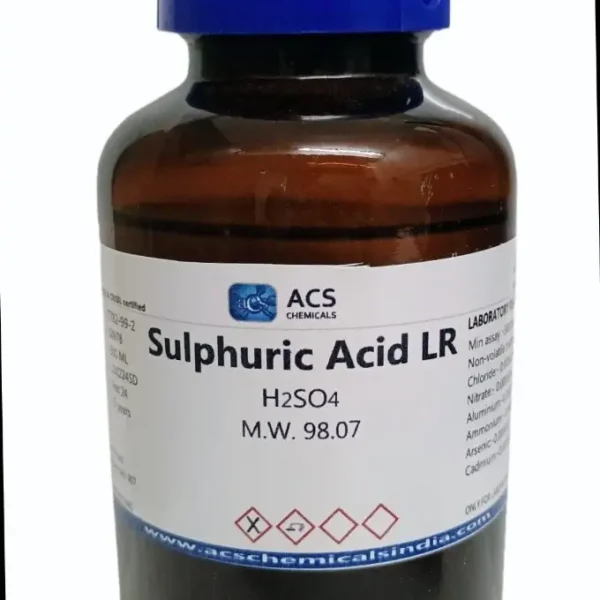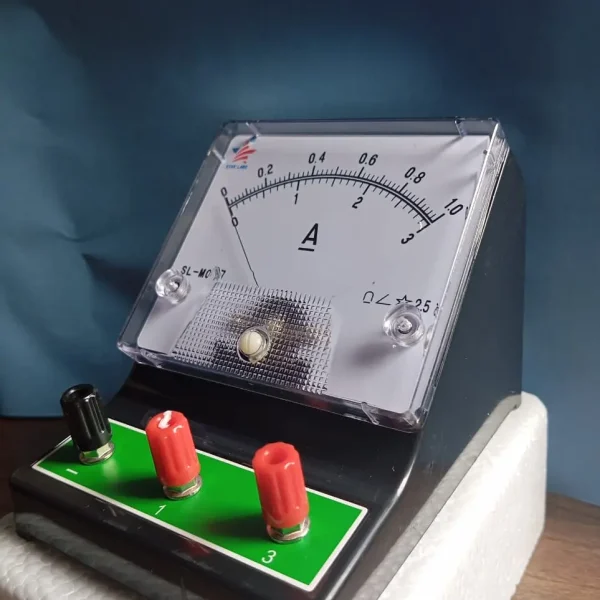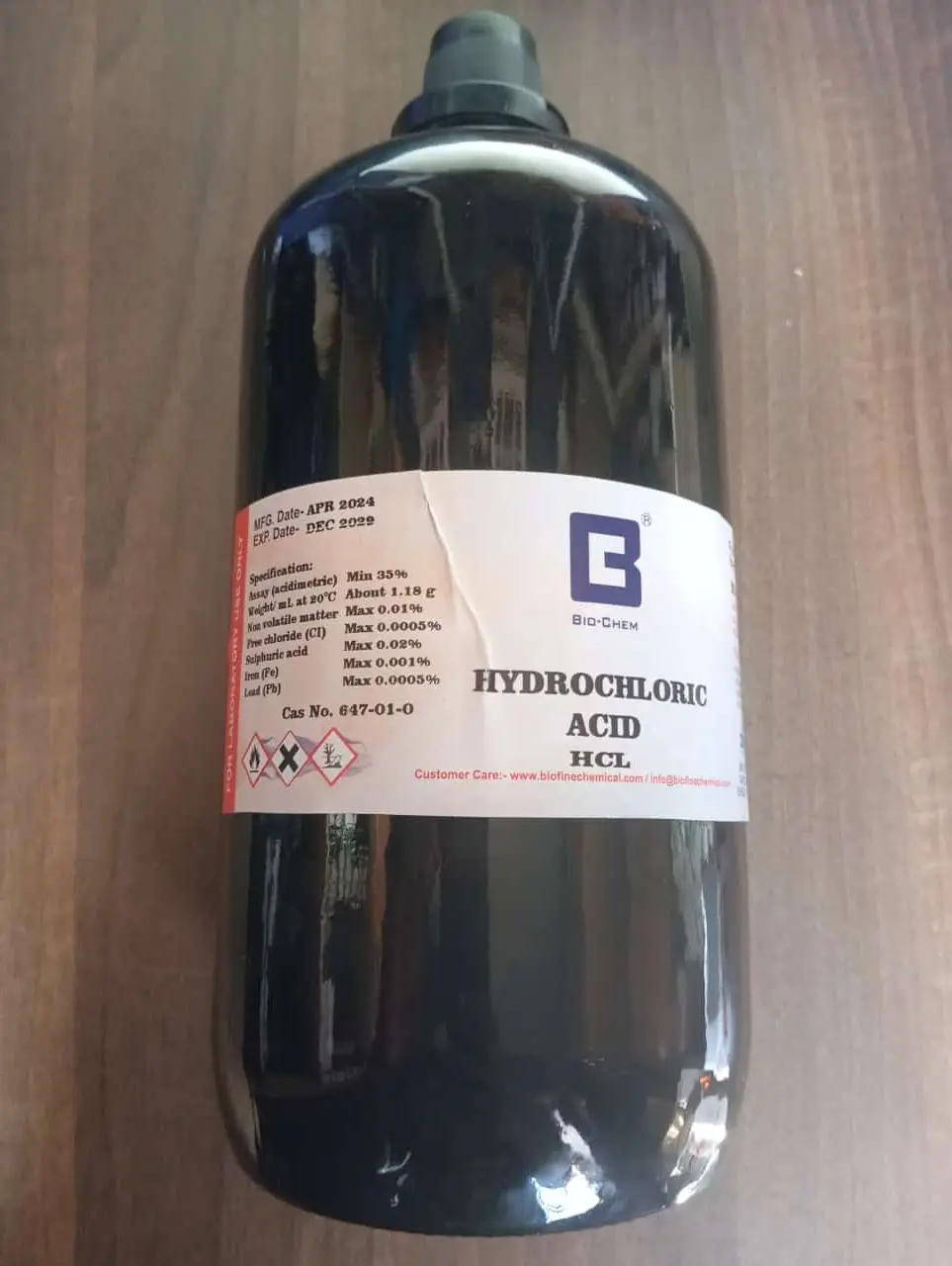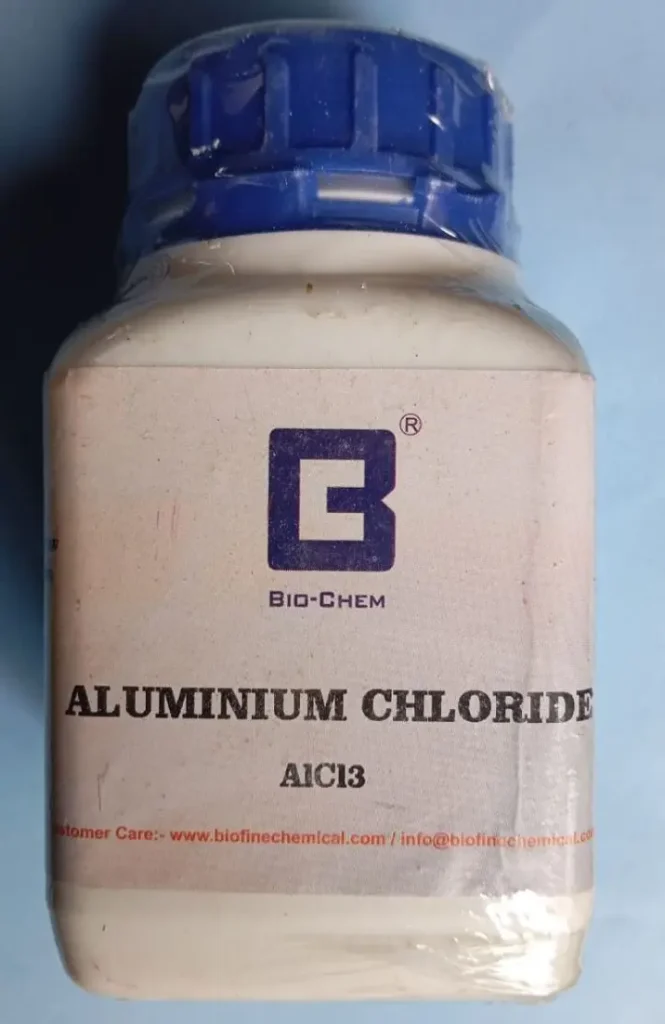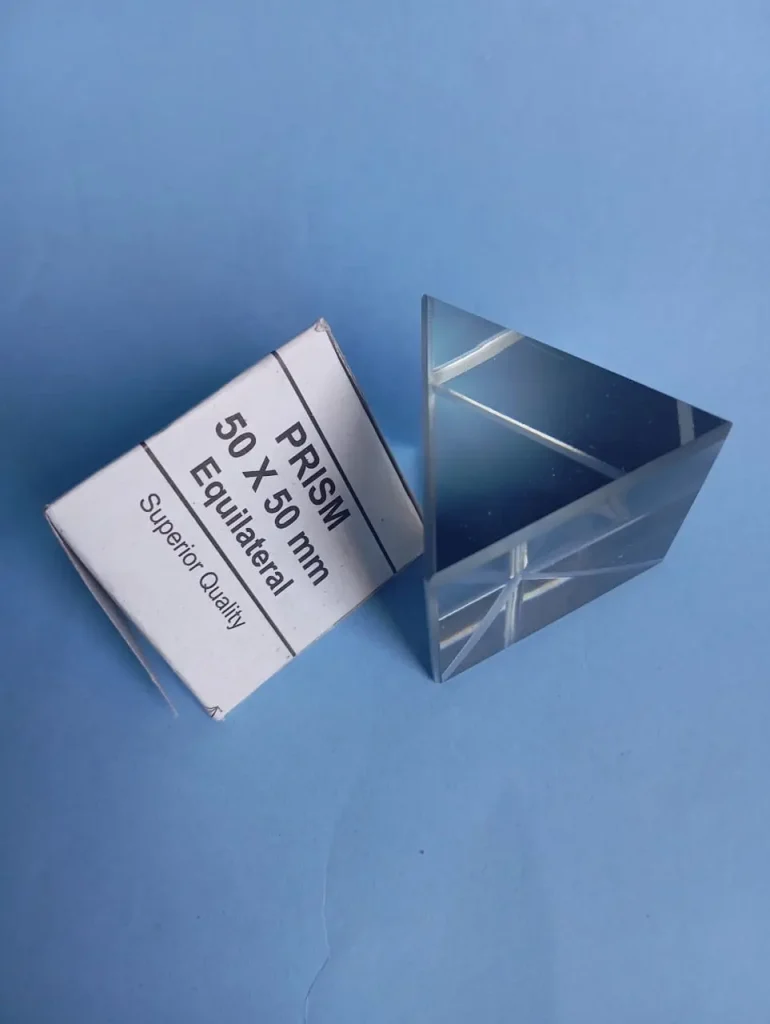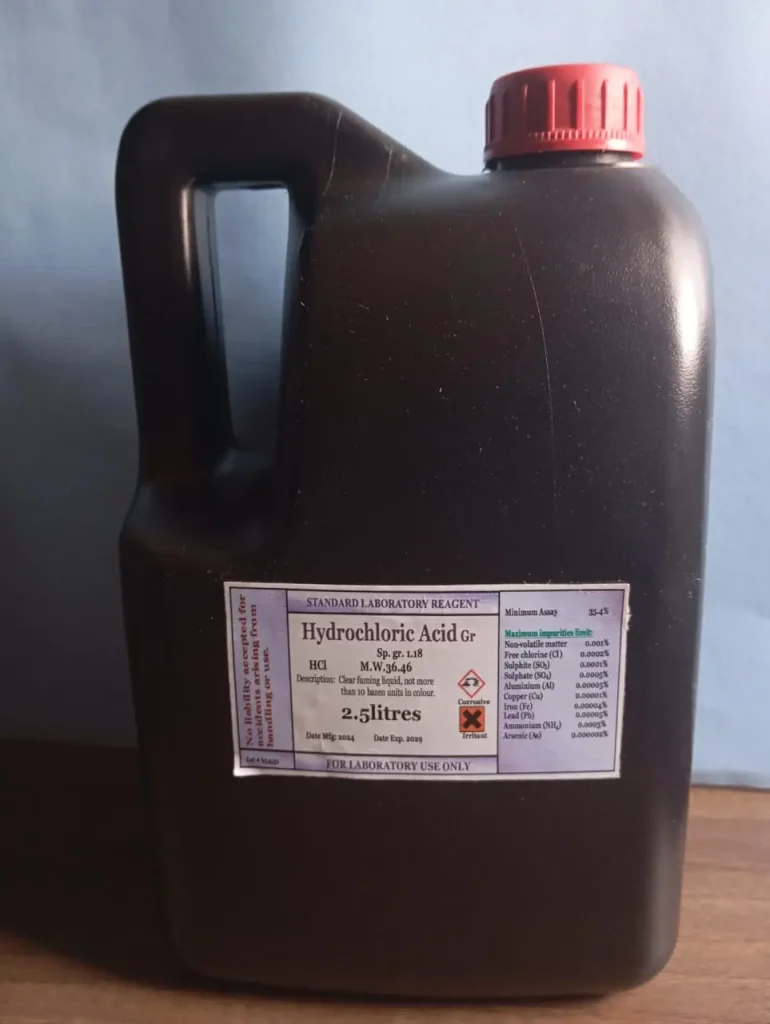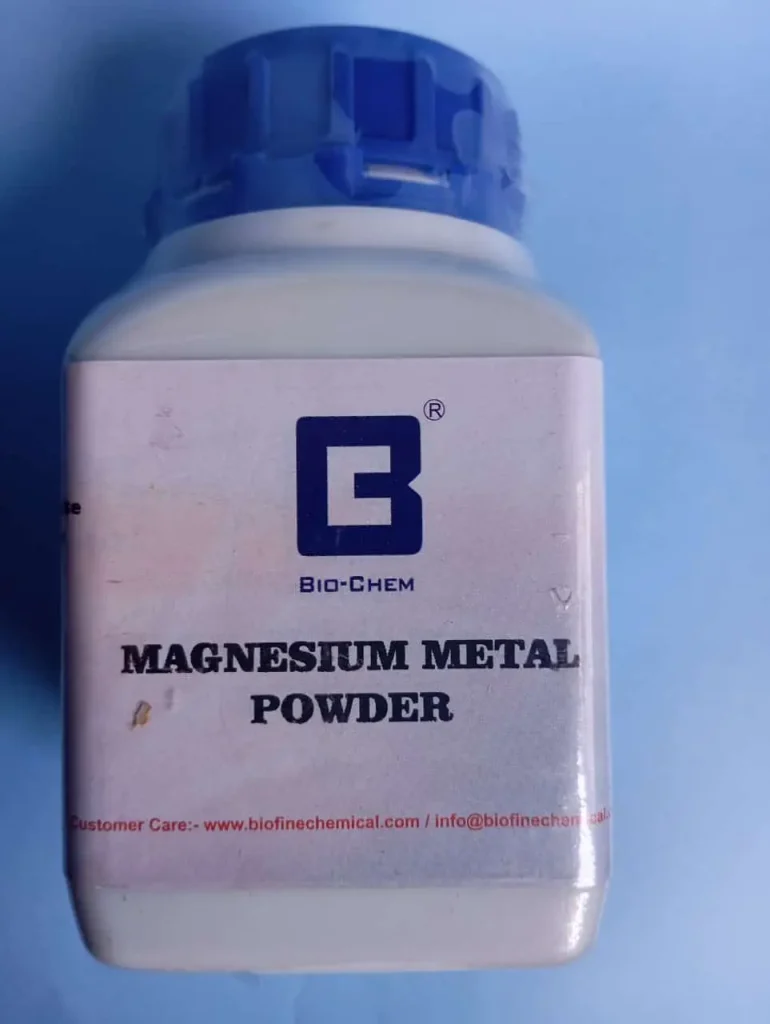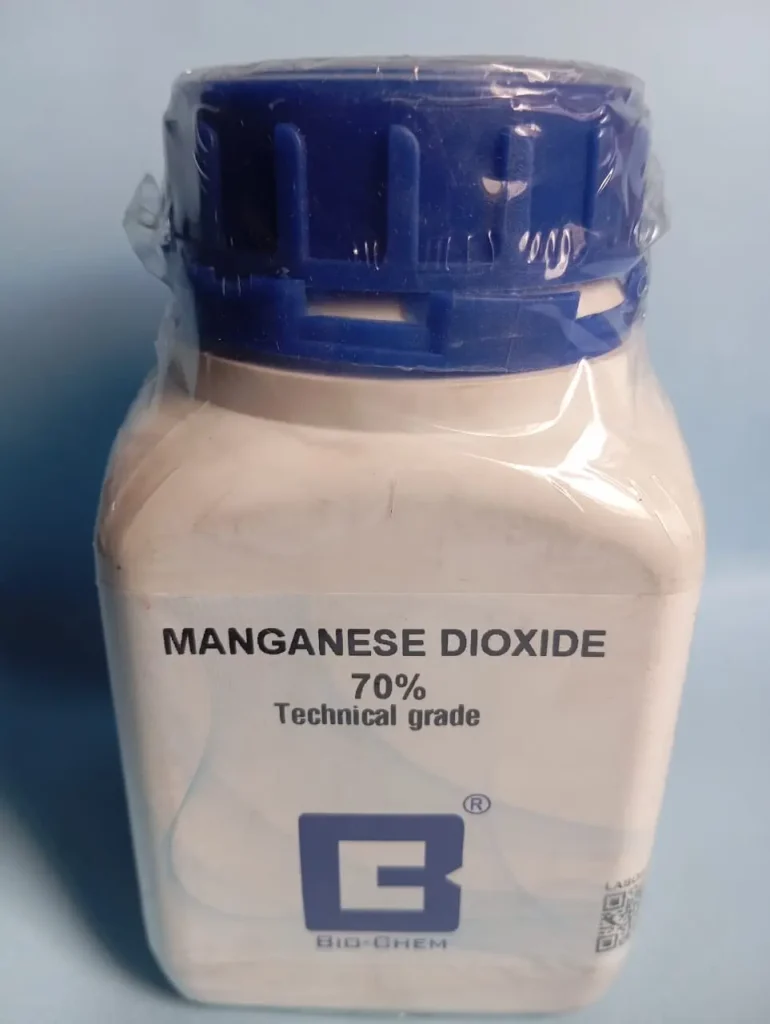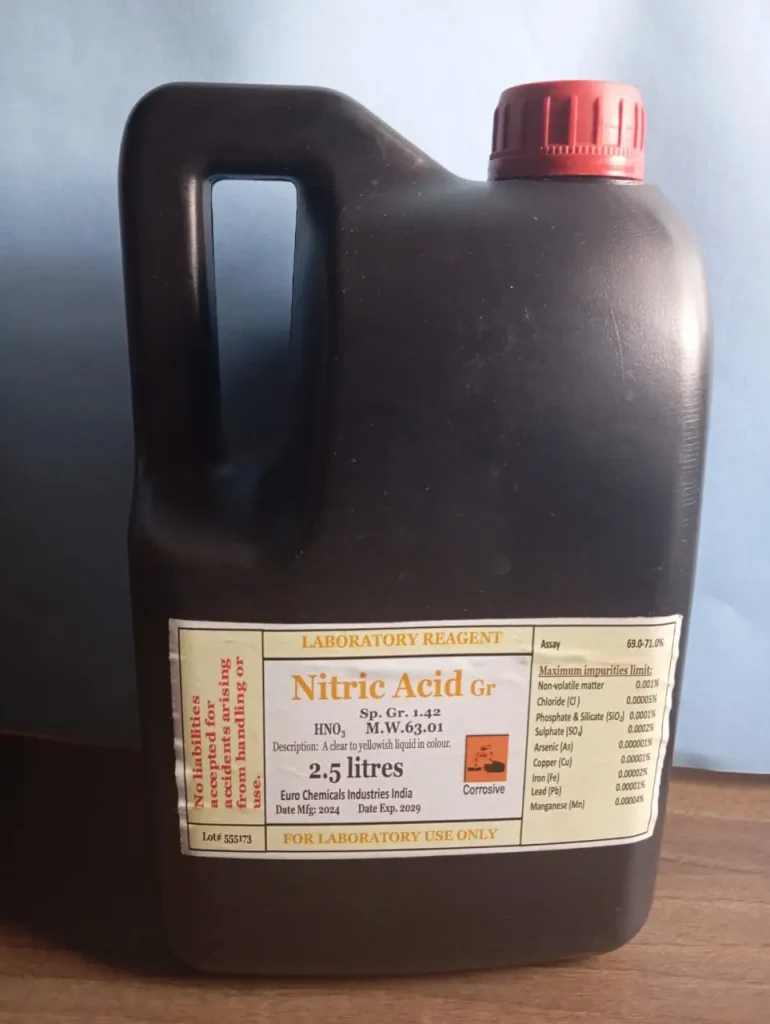Analytical Hydrochloric (HCL) Acid -2.5Litres
Description:
-
Chemical Formula: HCl (Hydrogen Chloride) is the simple formula for hydrochloric acid, a strong acid that dissociates completely in water to form hydronium ions (H₃O⁺) and chloride ions (Cl⁻).
-
Purity: Analytical HCl typically refers to high-purity hydrochloric acid, specifically reagent-grade acid, which is free from impurities. It is usually available in concentrations ranging from 30-37% by weight, but its strength can vary depending on the intended use and manufacturer.
-
Appearance: It is a clear, colorless liquid that is highly corrosive and has a sharp, pungent odor due to the release of hydrogen chloride gas when exposed to air.
-
Concentration: Analytical HCl is often available in different concentrations, depending on the specific requirements of the application. Concentrated HCl (also known as fuming hydrochloric acid) contains around 37% HCl by weight, and diluted HCl contains a lower concentration.
Common Uses:
-
Titration and Analysis: Used in the quantitative analysis of alkalis and basic solutions, including the preparation of standard solutions for titration.
-
Purification and Separation: Used in the extraction and purification of certain compounds. It can dissolve metals like iron and zinc, forming metal chlorides, or help separate metals from ores.
-
Synthesis of Chemicals: Used in the preparation of various organic and inorganic compounds. For example, in the production of chlorides or the synthesis of isocyanates.
-
Buffer Solutions: Hydrochloric acid is used to prepare various buffer solutions for laboratory experiments, where maintaining a specific pH is essential.
Safety and Handling:
-
Corrosive: Hydrochloric acid is extremely corrosive, and direct contact can cause serious damage to the skin, eyes, and mucous membranes. Always wear proper protective equipment, including gloves, goggles, and lab coats.
-
Ventilation: It should be used in a well-ventilated area, preferably under a fume hood, to avoid inhalation of harmful fumes. The release of HCl gas is particularly dangerous in confined spaces.
-
Storage: Store hydrochloric acid in corrosion-resistant containers, such as glass or plastic, and away from bases or reactive substances. Keep the containers tightly sealed and ensure they are stored upright to prevent leakage.


